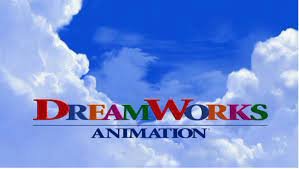The story world, like the real one, is filled with characters of every level of intelligence. How to write the less-intelligent ones authentically and entertainingly without debasing yourself or your audience in the process?
Read moreWHEN YOU CREATE CHARACTER, BE AN UNDERWRITER
Leveraging the power of the reader’s own mind is a classic writing tool, but it’s often misused, especially by newbies. The pro tip is to make your audience’s collective mind do more by feeding it less.
Read moreYou're the piece of shit the universe revolves around.
When it comes to creating character, the make-believe people in your writing say as much or more about you as they do about themselves.
Your selection of traits for your characters involves heavy judgment. Your "bad guy," through your conscious and unconscious effort, probably comprises more traits you consider negative than your "good" guy.
But what is a negative trait? One writer's "selfishness" is another writer's "healthy boundaries." My "team player" may be your "ass-smoocher." If we dial up the traits to extremes to make sure as much as the audience as possible "gets" what you're saying about your character, you may not have a character at all; you may have a caricature. That's fine for a comic book movie -- no, I take that back, it's not fine if you want it to be a good comic book movie.
If you're writing a movie that doesn't have "good" and "bad" characters -- that is, characters you want the audience rooting for and rooting against -- then this is a non-problem. What you're writing is closer to a cinematic novel than the vast majority of Hollywood movies, in which there's a clear protagonist who's either a hero or an anti-hero, and an antagonist.
Ordinary People slices life up the way it really is, where everyone's a victim to one degree or another. Not so "Sully," in which you know from the first thirty seconds (actually from the moment you see the poster) who the "good" guy is. And both are good movies, or so says this gentle writer.
But my point isn't about character creation at all. Me, I'm fascinated by how the characters we writers create reflect ourselves. They say every character in a piece could be construed as a different facet of the author. I believe that, since I subscribe to what I call the Grand Unified Theory of Selfishness (or GUTS), the soon-to-be-famous construct that says everything we do, experience and create is in one way or another about us. (Actually about me, Roger Schulman.) No matter how much I judge myself, pummel my self-esteem, tear myself down, I still know It's All About Me. I am the piece of shit around which the universe revolves.
What do your characters say about you? In particular, which of your own traits have you embedded in your "bad guy," and which made it into your "good guy?"
Your audience will never know this, but the answers say as much about how you judge yourself -- about where pride and prejudice play a part in your personality -- as about your onscreen avatars. And if your writing never does make it to the small or large screen, at least you'll have the benefit of that self-therapizing.
What do you think? Leave a comment.








